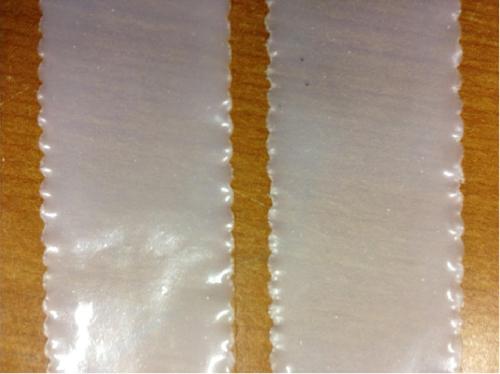The use of ordinary packaging materials poses a threat to the environment, while the biodegradable bioplastics are not tough enough. This problem has not been solved. The Rangar research team at Tuskegee University is ingenious in using eggshell nanoparticles to toughen bioplastics, and the small eggshells really transform bioplastics into ideal packaging materials.

The eggshell is a peculiar material with a strong top end, but it is easily cracked from the middle. Once the eggshell cracks, we will not hesitate to abandon it. The scientific report pointed out that the addition of small eggshell fragments to bioplastics can produce the first biodegradable packaging material that is bendable but not easily broken. Researchers reported on the results of the 251st International Conference of American Chemical Society.
Dr. Vijaya K. Rangari said: “We are working to break down the eggshell into small components and then add it to the bioplastics we produce. These nano-sized eggshell fragments increase the strength of the material. It makes it easy to circulate in the market. We believe that the above advantages and its biodegradability will make eggshell bioplastics a very attractive packaging material."
Manufacturers worldwide produce approximately 300 million tons of plastic per year. Almost 99% use fossil fuels such as crude oil as raw materials. Once discarded, these petroleum-based plastics cannot be degraded for hundreds of years. If it is incinerated, it will release carbon dioxide that causes greenhouse effect in the environment.
Some manufacturers are producing a bioplastic that is easily degradable in the soil. This plastic is derived from corn starch, sweet potatoes and other renewable plant resources. However, the strength and toughness of the above-mentioned raw materials are not sufficient for use in the packaging industry. As a result, petroleum-based materials still dominate the market, especially in grocery stores and retail stores that supply countless plastic bags.
In order to find a solution, Rangari and Boniface Tiimob of Tuskegee University and colleagues used a variety of polymers for research. Finally, they found a mixture containing 70% PBAT (polyadipate/butylene terephthalate) and 30% PLA (polylactic acid) (PBAT is a petroleum polymer and PLA is derived from corn starch). Unlike other petroleum-based plastics, PBAT is designed to begin to degrade in the soil for three months.
Although this mixture has many characteristics that researchers have been searching for, they still hope to further enhance the toughness of the material. Therefore, eggshell nanoparticles have emerged. They chose the eggshell because it is porous, light, and composed of the naturally degradable calcium carbonate.
By crushing the cleaned eggshells in polypropylene glycol and sonicating, the researchers obtained eggshell nanoparticles of a size of 350,000 of the hair diameter. They then added these small particles to the above mixture of PBAT and PLA, and then found that the bioplastics with eggshell fragments added were seven times more tough than ordinary bioplastics. They say that such flexible materials are the ideal packaging for retail stores, grocery stores and food containers.
In addition to bioplastics, the Rangari team is working on the use of eggshell nanoparticles to accelerate wound healing, bone regeneration and drug delivery.
Dyestuff Intermediates,Hair Dyes Intermediate Dyestuffs,Dyestuff Intermediates Powder,Aniline Oil In Dyestuff Intermediates
FORING IMPORT & EXPORT CO.,LTD , https://www.foringfor.cn